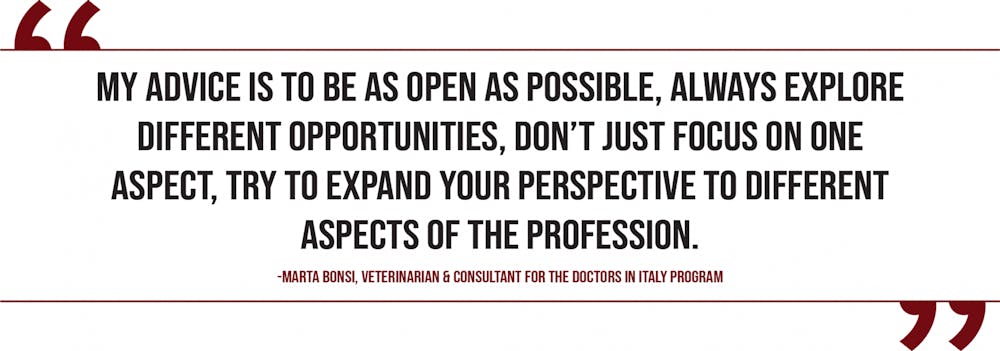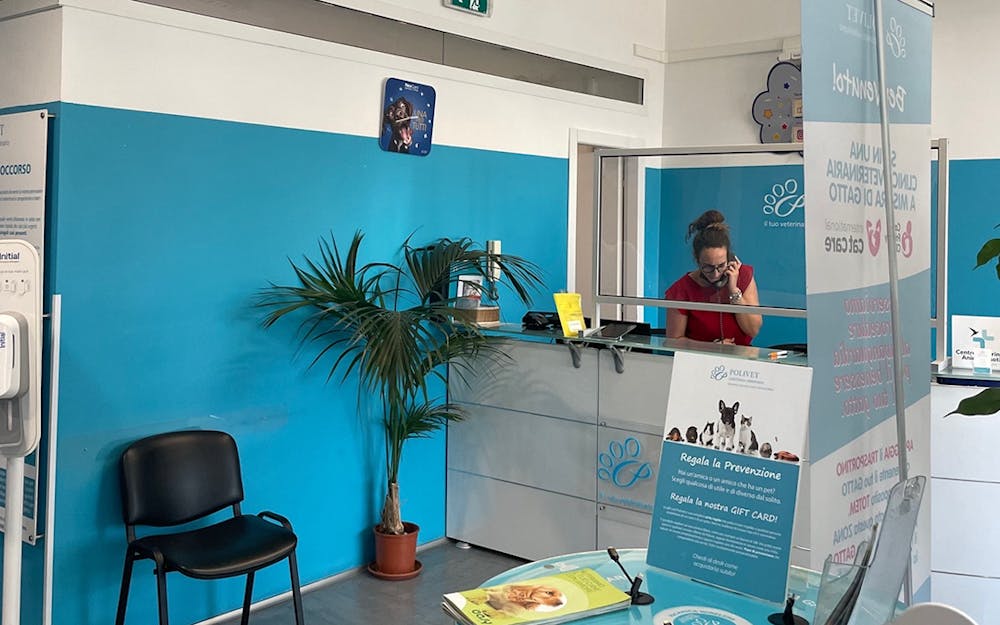This July, three pre-veterinary students at USC were invited to spend two weeks working in a clinic and an animal sanctuary in Rome as part of the Doctors in Italy Fellowship Program.
The students worked Monday through Thursday of each week at the sanctuary and clinic, where they learned the veterinary care that goes into taking care of different animals. They shadowed local veterinarians as they worked and saw both domestic and farm animals, such as dogs, horses, sheep and goats.
Doctors in Italy is a program that allows students to shadow doctors and learn more about the medical field in the country. The trip was originally introduced to students via email by Martina Conte, the admissions coordinator for the program.
Kayla Floyd, a fourth-year biology student, said she applied because she decided it would be a good career opportunity but wasn't sure what to expect.
“(Conte) sends us things all the time, regarding internships and things like that,” Floyd said. “I really wasn’t expecting to get accepted. I just put my application in as if it was like any other day.”
Caroline Prentice, a second-year biology student, found out about the trip through the Gamecock Pre-Veterinary Association. She said she was anxious at first because she was going overseas alone, but she found the experience more rewarding than expected.
“It really was like stepping out of my comfort zone and putting trust in myself and learning to be a little bit more independent,” Prentice said.
One of the veterinarians the students shadowed was Marta Bonsi, who also works as a consultant for the Doctors in Italy program. Bonsi, who lives in Italy full-time, gave lectures about veterinary medicine and mentored the students in clinical settings.
Bonsi said the Doctors in Italy pre-veterinary program uses a trans-disciplinary approach, so students can learn both in clinical and non-clinical settings.
“I really have a passion for veterinary education,” Bonsi said. “Doctors in Italy was a great opportunity for me to fulfill my desire to share knowledge with veterinary students and to build their interest in veterinary medicine.”
Along with learning about animals and veterinary processes, Prentice and Floyd also got the chance to explore Italy.
On Fridays, the students traveled for a group excursion after four days of working in the clinic. Floyd visited the famous Roman Colosseum while Prentice visited the town of Pizzo, and they both spent time at the coast. On the weekends, the students had the chance to explore Rome on their own.
“That was a lot more free than any of us thought it was going to be,” Floyd said. “We thought we were going to have like a supervisor on us the whole time when really it’s just them letting you figure out the city.”
Prentice found the trip memorable because she had the opportunity to learn more about her family’s culture. She said her great-grandmother was from Italy, so being able to experience Rome was "incredible."
“It was just such a once in a lifetime experience,” Prentice said. “The fact that I was able to, on top of that, grow in my vet career and have this amazing opportunity, it was the best of both worlds.”
Floyd also learned a lot on the trip, saying she became a lot more open minded from traveling to a different country and seeing how the techniques she has learned at USC are not the only right ways to practice medicine.
Bonsi finds the Doctors in Italy program educational for herself as well. She said by teaching students from America, she learns more about opportunities and challenges in the U.S., the American education system and international veterinary programs.
“My advice (to veterinary students) is to be as open as possible, always explore different opportunities, don’t just focus on one aspect, but try to expand your perspective to different aspects of the profession,” Bonsi said.


